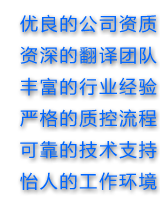《帝国摇摇欲坠:俄罗斯与普京从相恋到分手》简介
《帝国摇摇欲坠:俄罗斯与普京从相恋到分手》 由青岛翻译公司推荐阅读:作者系本•犹大;耶鲁大学出版;379页;售价30美元或者20英镑。
VLADIMIR PUTIN came to power on May 7th 2000 under the banner of economic reform, modernisation and anti- corruption. In a bow to Russian history he ordered that “The Gulag Archipelago”, Aleksandr Solzhenitsyn’s 1973 book about Stalin’s Soviet forced-labour camp system, be made a set text for Russian schoolchildren, a radical move as the book is both searing and unrelenting and had been banned in the Soviet era.
2000年5月7日,弗拉基米尔•普京带着经济改革政策、现代化措施和反腐败措施走马上任。根据俄罗斯的历史,亚历山大•索尔仁尼琴于1973年所出的《古拉格群岛》——描写斯大林时期的苏联强制劳动营制度的一本书,普京命令将其编进教科书。这一举动说来还是比较激进的,眼下这本书语言尖酸刻薄、不留情面,而前苏联时代是被列为禁书的。
Now three very different new books illustrate how misguided such hope in Mr Putin’s modernisation turned out to be. Fiona Hill and Clifford Gaddy both work for the Brookings Institution, an American think-tank. Mr Gaddy has been a prolific writer, first about the Soviet economy and now about the Russian one. In the 1990s he advised the Russian government on fiscal federalism. British-born Ms Hill oversaw Russia at America’s National Intelligence Council in Washington, DC.
今天这三本截然不同的新书阐述了普京寄希望于自己错误的现代化政策以及政策随后表现。菲奥娜•希尔和克利福德•加迪都在美国智囊团布鲁金斯学会工作。加迪曾是一位高产作家,第一本关于前苏联经济,这一本则是关于俄罗斯的经济。20世纪90年代,加迪建议苏联政府采取财政联邦制。英国出生的希尔位于华盛顿的美国国家情报委员会注视着俄罗斯的一举一动。
The authors have met and talked with Mr Putin, and they respect him up to a point. Here is a man who rose from a mid-level, dead-end job, working for the KGB in East Germany, and reinvented himself as a reformist deputy to St Petersburg’s liberal mayor, Anatoly Sobchak. Moving to Moscow in the late 1990s, the efficient Mr Putin was quickly promoted until he was governing Russia, a burden that had nearly crushed his predecessor, Boris Yeltsin.
几位作者都曾受到过普京的会见,也与他进行了交流。某种程度上讲,他们都很尊重普京。中产阶级的普京从一份不死不活的工作(为东德克格勃效力)中爬上来,之后自己作为改革派先锋的新身份展示给崇尚自由主义的圣彼得堡市长阿钠托利•索布恰克。20世纪90年代后期,进入莫斯科工作。由于普京工作效率出众,提拔不断,坐着“直升飞机”直达总统宝座。之前普京前任叶利钦因总统一职几近不堪重负。
According to this intriguing book, Mr Putin’s success can be ascribed to a series of transformations in which he has posed, first as a he-man, then as a sportsman or military man, with appropriate costumes for each. When he is not posturing, Mr Putin uses his KGB training to cultivate those who might be of use to him. He likes to quote a remark once made to him by Henry Kissinger, whom he greatly admires: “All decent people started their careers in intelligence.”
这本书引起不少人窥探,普京的成功能够归因于他进行的一系列角色装饰。首先尽显男人本色,然后展示运动天赋、突显军人气质,当然装备是必不可少的。而当他不再故作姿态时,普京运用自己在克格勃所学所炼开始安插心腹、建立党羽。普京喜欢引用亨利•基辛格曾经形容他的话,当然普京是相当崇拜基辛格的,“正派的人都是从情报工作起家的。”
Mr Putin’s chief ambition, the authors say, was to impose order and authority on Russia after the chaos of the Yeltsin years. Ms Hill and Mr Gaddy quote a manifesto that Mr Putin wrote and published in December 1999, just before he became president. In it he argued that, “For Russians, a strong state is not an anomaly to fight against. Quite the contrary, it is a source and guarantor of order.” Mr Putin issued an ultimatum to the oligarchs in 2000, ordering them to remember that their business was business, his was politics, and they should not presume to mix the two. The move was of critical importance and explains much of what has subsequently happened, including the furious exile of the late Boris Berezovsky.
几位作者说,普京首要雄心壮志是要在叶利钦造成的乱摊子之后,将俄罗斯治理成一个听话、专权的国家。希尔和加迪引用了普京在1999年12月撰写和出版的刚要,那时他还不是总统。其中普京谈到“对于俄罗斯的人民,一个强大的国家并不是反常的一直作斗争。恰恰相反,强大的国家是命令的源泉和保证。”2000年普京向寡头们发出最后通牒,警告他们做生意就做生意,不要参与他的工作——政治,也不要试图将二者搅浑。此举异常重要并且解释了大多数随后发生的事情,包括当时一怒之下流放现已去世的别列佐夫斯基。
Alena Ledeneva, a Russian-born sociologist at University College London, has a broader view about the relationship between petitioners and the petitioned. In her book, “Can Russia Modernise?”, she explains the difference between blat, low-level corruption in which the economy runs on an exchange of favours, and the full-blown sistema of the modern Kremlin.
俄罗斯出生的阿伦娜•勒德那娃在伦敦大学任教,是一位社会学家。她对于上访者和请愿者之间的关系有着更为广泛的认识。书中提到“俄罗斯能否实现现代化?”,阿伦娜给出的解释是:存在于互惠互利的经济运行之中并且三番五次提及的低端腐败和现代化克里姆林管理下全面发展的希斯推马电讯公司不可伯仲相谈。
In the 1990s biznes in the form of the oligarchs captured the state and dictated policy to Mr Yeltsin. By contrast, the first decade of this century witnessed the return of a more historic model of governance in which “the state captured business”. Mr Putin, Ms Ledeneva argues, does not really believe that Russia’s former state corporations belong to their new owners. Instead, he regards those who took control of the commanding heights of the Russian economy—its oil and gas resources mainly—as crooks who got lucky in the 1990s. Now they are mere managers-on-a-leash.
20世纪90年代,biznes 寡头公司控制着整个国家,对叶利钦的政策横插一杠。不同的是,本世纪头十年见证了“国家掌控商业”政府收回了大部分历史遗产。阿伦娜说普京其实并不认同俄罗斯前国体中形成的腐败也得归到现任政府麾下。相反,普京认为那些在俄罗斯经济领域中说话举足轻重的人——主要是石油和天然气资源——才应该负责,因为他们在那个时候占尽了便宜。如今,这些人不过是一条绳上的大经理而已。
Ben Judah, a young freelance writer, paints a more journalistic—and more passionate—picture in “Fragile Empire”. He shuttles to and fro across Russia’s vast terrain, finding criminals, liars, fascists and crooked politicians, as well as the occasional saintly figure. Mr Judah meets so many drunks along the way that he comes to conclude that Russian men are drinking themselves and their country to death. Mr Judah believes that corruption has become so endemic that it is no longer just about theft, but about power. “The Russian economy is so distorted to the advantage of the [Putin] group that they cannot be accused of corruption—but of state capture.”
年轻的自由撰稿人本•犹大为“摇摇欲坠的帝国”作一副更为新闻化也更富有激情的画作。他经常来往于俄罗斯主要的地区,抓一些犯罪、诈骗、法西斯和投机的政客的素材,当然偶尔还有一些关于圣洁方面的材料。犹大认为腐败地方性特质明显,小偷小盗不再主流,权势开始立于聚光灯之下。“俄罗斯经济畸形太甚,但是对于这个组织(普京政府)而言却利处多多,他们不会由于腐败受到责难——由于国家控制受谴责而差不多。”
Ms Ledeneva, in her relentlessly careful way, itemises the tariffs of Russian corruption: $10m for a minister’s seat or $100,000 a month to officials as “the basis of good relations”. Her interviewees remind her that this is the system; “Once you’re in,” says one, “you can’t change it.”
在阿伦娜不懈且精心的坚持下,详细记录了俄罗斯腐败的账目表:部长一职售价1000万美元;10万美元一个月作为同官员的“关系保障金”。她想起来自己采访过一些人,其中一个人如是说,这一制度实则是:“进来之,则安之。”
Ms Hill and Mr Gaddy borrow a phrase from Alexei Navalny, a blogger and opposition leader, who said: “Putin’s system truly is ‘a party of swindlers and thieves’.” Several of the people arrested in recent demonstrations have been given jail sentences. Mr Navalny too faces jail; he is on trial on trumped-up embezzlement charges. Ms Ledeneva thinks the sistema she describes is incapable of reform without a “fundamental change in morals, social norms and individual incentives”. Mr Judah is in no doubt that Mr Putin is a dictator in the making. The answer to the old question, Kud a idyot Rossiia (“whither Russia?”), is down—and further down.
希尔和加迪借用了反对派领袖阿列克谢•纳瓦尔尼博客上的一番话:“普京政府实际上同‘骗子和贼’是一伙的。”许多在游行中遭到逮捕的群众都被判进监狱服刑期。纳瓦尔尼也面临着进监狱的命运;他被安上“莫须有”的贪污罪名,继而遭到指控审讯。阿伦娜认为,如果“道德操守、社会规范和个人激励政策不从根本上改变”,那么在她看来希斯推马电讯公司是没那个能力去推动改革。毫无疑问在犹大眼里普京就是一位决策上的独裁者。回答一个存在已久的问题“Kud a idyot Rossiia(俄罗斯路在何方?)”——往基层看,走下去。
青岛翻译公司推荐阅读
随机文章













